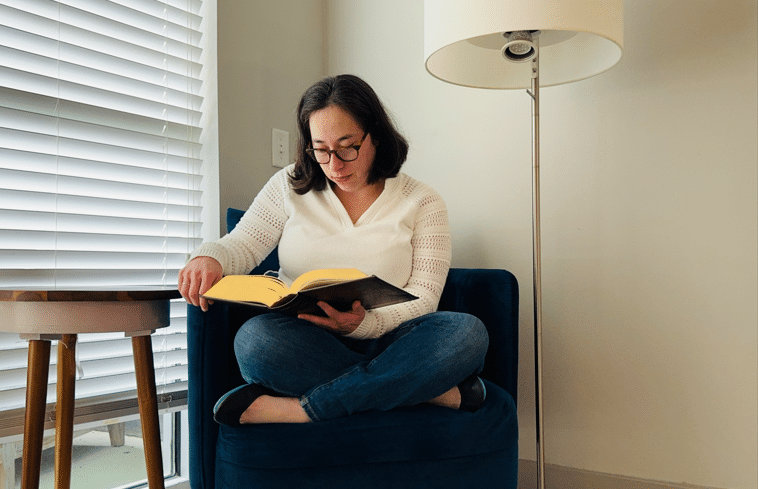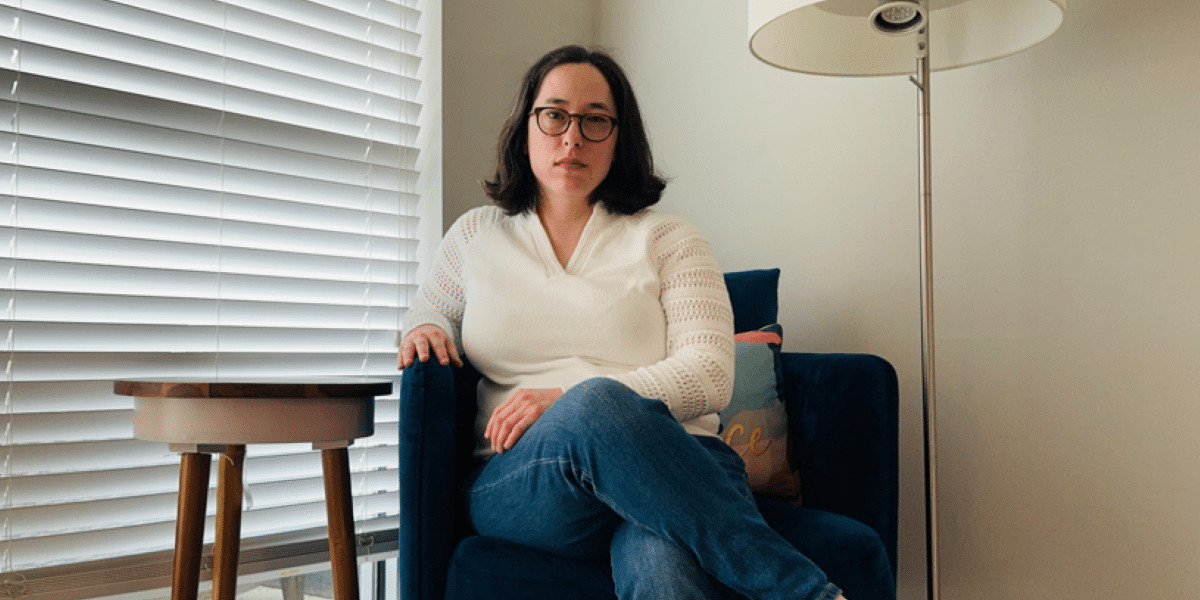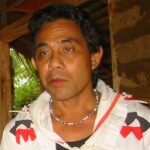By Emily Hellam
As a music therapist and host of the “Creative Peacemeal” podcast, Tammy Takaishi has dedicated her life to bettering the world around her through creative endeavors. “Creative Peacemeal” reminds us of the centrality of creativity in finding joy and the value of finding artistry where we least expect it.
Tammy Takaishi is a bonafide twenty-first century renaissance woman. As a music therapist, she composes, offers, and utilizes the inherent power of music to assist a wide array of clients on their healing journeys. As a podcast host, Takaishi boasts a unique talent for seeking out and amplifying creativity in its many ever-evolving forms. As a poet and writer, she creates moving lyricism catalyzed by foremost inspirations. Above all, she’s a tenacious champion for creatives and the merit of pursuing creativity in all its incarnations.
Through exploring two of ‘Creative Peacemeal’’s stand-out episodes, we discover stirring insights about Takaishi herself that led to her success as a music therapist and podcast host and the inherent importance of creativity across disciplines. ‘Creative Peacemeal’ offers value to listeners of all backgrounds, with Takaishi leading from the philosophy that “everyone is creative…it may just look different than what you imagine”.
To mark the occasion of the hundredth episode of ‘Creative Peacemeal’, Takaishi turned the mic around to friends and colleagues Mark Alan Miller and Elizabeth MacDuffie of ‘Meat For Tea’ podcast and literary magazine, and took a turn as interviewee. “The One Where Tammy Gets Interviewed” allows listeners to hear Takaishi’s answers to the refreshing questions she usually poses to her guests. When asked about what led her to becoming a career music-therapist, Takaishi offers “I thought I wanted to do music education, and then decided that wasn’t quite the thing for me. I felt music therapy found who I was…Everything clicked. Everything I was supposed to do on earth was wrapped up in music therapy”.
Takaishi has harnessed the healing potential for music to aid clients in schools, hospitals, hospices, and more. An often misunderstood profession, Takaishi sets the record straight: “Just like occupational therapists, and physical therapists, we’re an allied health profession. We’re degreed. We take courses in psychology and counseling, and have a rigorous internship. Music therapy happens with a board certified music therapist, a patient or client, and they’re joined in that relationship to use music and be in the music to work through problems, whether it’s emotional, physical, psychological, what have you. There’s goals and a treatment plan.”
As someone acutely attuned to the value of listening and the seminal importance of artistic pursuits for a happy life, podcasting was a natural next step for Takaishi. She notes that the best compliment she’s ever received is that she is a “good listener”. “I love to talk, but I also love to listen…I always knew I wanted to do something in music, but everything has turned out differently and so much better. Falling into podcasting has been a complete 180, but I’m so happy with how it turned out”.
Takaishi’s carefully-researched yet casual interview style attracts creatives from every industry, with over 120 episodes featuring Grammy and Pulitzer winners, culinary artists, photographers, actors, and more. Takaishi notes that her favorite quality about herself is her creativity, and it’s clear by the caliber of individuals delighted to feature on her show that she’s correct in her assessment. “If I don’t do enough creative stuff, I feel it. I feel creatively grumpy. There’s such joy and freedom in making something, letting your imagination run wild”.
Due to this attitude and insatiable thirst for creativity, ‘Creative Peacemeal’ and Takaishi are special in their ability to color outside the lines and find creativity in unexpected places. An episode that may seem to be a departure from the ‘typical’ artists Takaishi usually engages with, her recent interview with astrophysicist Xiaosheng Huang illuminates the core of what makes ‘Creative Peacemeal’ unique and important.
Takaishi compares Mozart and Einstein, both emblematic of excellence in their respective fields and heroes of Takaisi and Huang. Takaishi describes Mozart’s work by offering, “it’s cosmically aligned, in his notes. I’m sure you feel the same when looking at Einstein’s equations, it’s almost perfection. Or must be perfection, to have stood the test of time”. Huang vehemently agrees, adding “The mathematical beauty and its consequences are beyond imagination. But time and time again, [his theories] just turned out to be true.”

Huang and Takaishi discover a variety of parallels in their careers, methodologies, and philosophies. While it’s easy to see the value of creativity when focusing solely on the fine arts, Huang’s interview reveals something much more penetrating and existential about the necessity of creativity.
Huang notes an aspect of his field which any artist will recognize and empathize with instantly: “Creativity shows up in the solution to a hard problem. It’s a lightbulb. The only way that happens is, I need to stay with that pain for a long time. Just be persistent, keep thinking about it…sit with that ugliness, and keep iterating it. Keep sculpting it”.
Takaishi offers similar advice to creatives, which is “to be mindful of when you need to be creative, and when you’ve got that spark. Don’t ignore it, just follow that impulse. Say no to [other things] so you can do what you need to do”. Both Takaishi and Huang describe similar motivations within their careers, music therapy and professorship, which is the inextricable relationship between a creator and their audience.
“The classroom, when I teach, there’s this heightened level of energy. Because I’m excited about it, and students can sense that. The connection in the classroom is the best part of teaching. You’re watching growth right in front of you”, contends Huang. Takaishi adds that from a music therapy or orchestral perspective, “The connection is so important, it’s vital. The back and forth interpersonal communications where it’s just energy-it’s amazing”.
Takaishi’s ‘Creative Peacemeal’ shows us that the search for and use of creativity makes the world go round, from hospitals and concert halls, to observatories and university seminars. Ultimately, participating in your and others’ creativity crafts a happier, fuller life, and ‘Creative Peacemeal’ is the perfect place to start.
You can find ‘Creative Peacemeal’ at its website or wherever you find your podcasts. To connect with Tammy Takaishi, please visit her Facebook or Instagram.
Published by: Khy Talara

















